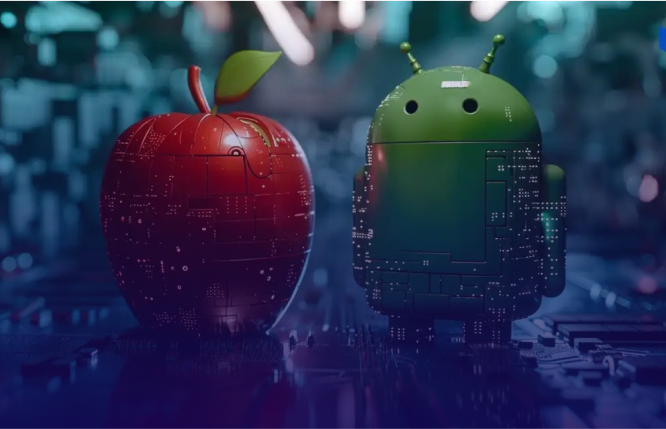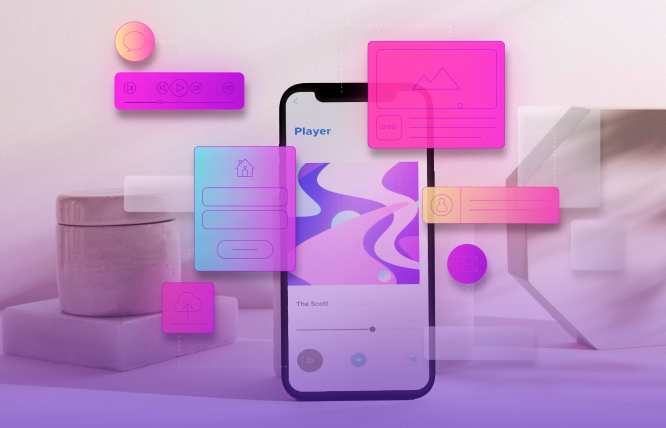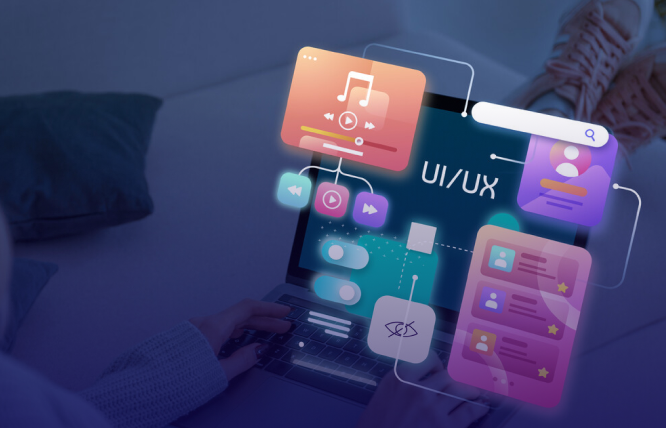Introduction
The difference between iOS and Android App development depends on factors like the development costs, target audience, performance, and monetisation strategies. Don’t forget – the right choice for you depends on your target market and your app’s goals.
We have witnessed remarkable growth in the mobile app market in recent years. This is propelled by the rise of the popularity of smartphones and tablets. If you are an individual or a business looking to tap into this huge market, mobile app development can be a strategic move. However, an important decision you must make is whether to go with Android or iOS.
Difference between iOS and Android App development
| Feature | iOS | Android |
Programming Language | Swift or Objective C | Kotlin or Java |
Operating System | iOS | Android |
Development Environment | Xcode | Android Studio |
Design Guidelines | Human Interface Guidelines | Material Design |
Monetisation Strategies | In-app purchases, subscriptions, freemium, advertisements | In-app purchases, freemium, advertisements, subscription |
App Store | Apple App Store | Google Play Store |
Performance | Usually smoother | It can vary across devices |
Development Costs | High – because of stricter guidelines and licensing fees | Lower – because of its open-source nature and more lenient guidelines |
Target Audience | Apple users commonly of higher income levels | A wider range of users with different income levels |
The above table hints at the obvious difference between iOS and Android apps.
Development Environment
The development environment plays a vital role throughout the app development process. iOS developers utilise Xcode, which is a reliable integrated development environment (IDE) offered by Apple. It presents a detailed suite of tools for designing, coding, testing and debugging iOS apps.
Let’s look at Android. Its developers primarily utilise Android Studio. It offers a similar set of features to Xcode but presents more customisation options.
Design Guidelines
When you adhere to the design guidelines, you ensure a consistent user experience and enhance app usability. Here, iOS apps follow the Human Interface Guidelines set by Apple that emphasize a clean interface, elegance, and simplicity. On the other hand, Android apps adhere to Material Design, a design language developed by Google that emphasises motion, shadows, and depth.
App Store Submission
Both Android and iOS have a different app store submission process. Let’s look at iOS first. Its apps must go through a rigorous review by Apple. This can take some days or even some weeks in various cases. The reason why Apple’s review guidelines are strict is because they ensure the safety and quality of apps present in the App Store.
Android apps have a rather lenient review process that permits quicker publication on the Google Play Store. However, this hints that there could be a good chance of malicious or low-quality apps being made available.
Monetisation Strategies
App monetisation is a must for revenue generation. Both Android and iOS platforms utilise different monetisation strategies, such as subscription models, freemium models, advertisements, and in-app purchases. However, each strategy’s related effectiveness could be different, depending on factors such as market competition, target audience, and the overall app nature.
Performance and Optimisation
App performance is directly related to the user satisfaction level. iOS devices are usually known for their smooth performance and optimisation. This is because of Apple’s formidable control over both software and hardware. On the other hand, Android devices can vary in performance. This depends on factors such as the app’s optimisation and the device’s specifications. If developers are looking to ensure optimal performance on Android, they might be required to invest more time in the optimisation efforts.
Development Costs
These costs can prominently vary between Android and iOS. Often, iOS app development involves greater costs because of Apple’s stricter guidelines and licensing fees. Additionally, iOS developers could have higher hourly rates than Android developers.
Android app development can also be expensive, especially for complicated apps that demand much more optimisation and customisation.
Target Audience
A better knowledge of your target audience will let you make the right platform choice. iOS users usually have higher average incomes and could very well adopt new technologies. Android users commonly come from a wider range of income levels and demographics. If your target audience primarily features Apple users, iOS is more likely to be the right choice.
However, if you look to reach a broader audience, then Android may be a more appropriate platform.
Concluding Remarks
The difference between iOS and Android App development depends on different factors, such as development costs, performance, monetisation strategies, app store submission, design guidelines, development environment, and the target audience. When you carefully consider all of such factors, you are in a better position to make informed decisions regarding the platform best suited for your app’s goals and objectives.
If you are looking for custom Android app development services or need to get things done regarding Flutter mobile app development, then contact FuturByte. We are a world-renowned mobile app development company that has extensive knowledge of open-source frameworks for mobile apps. Contact us today for a free consultation.
Frequently Asked Questions
Generally, iOS development is more expensive. This is because of Apple’s licensing fees and strict guidelines.
You have to consider factors such as app monetisation strategies, the target audience’s device preferences, and the development team’s expertise.
Very often, Android is preferred for MVPs because of its lower development costs and large user base.
Have questions or feedback?
Get in touch with us and we‘l get back to you and help as soon as we can!




